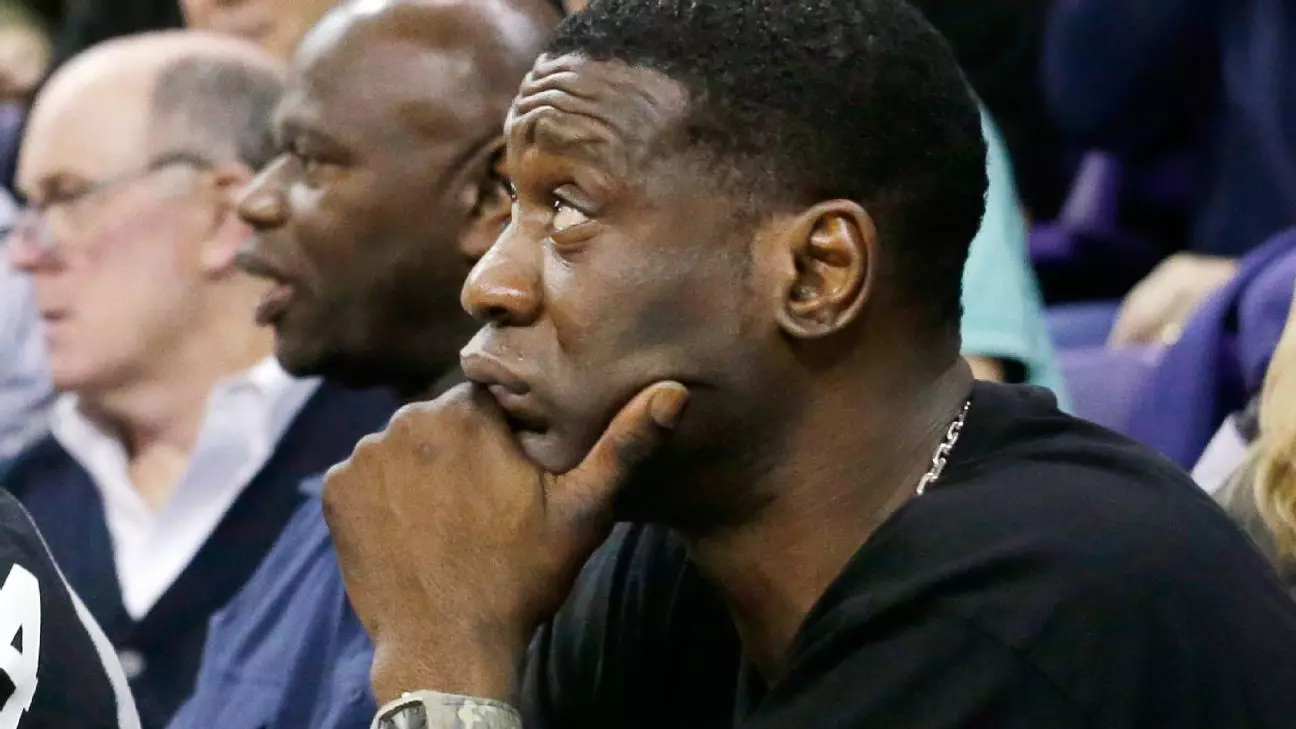Shawn Kemp, once hailed as a high-flying athletic sensation of the NBA, recently found himself embroiled in a harrowing legal battle that decisively shifted the narrative of his celebrated career. The former Seattle SuperSonics star pleaded guilty to second-degree assault after firing shots at two men in a parking lot in Tacoma, Washington. At 55 years old, Kemp’s admission of guilt marks a significant downfall from the heights of NBA fame, where he dunked his way into the hearts of basketball fans worldwide. This incident not only tarnishes his legacy but also raises questions about the pressures and challenges faced by public figures post-retirement.
Details of the Incident: A Confluence of Factors
The shooting incident on March 8, 2023, serves as a reminder that celebrity status does not shield one from the chaos and unpredictability of life. Court documents reveal that Kemp’s vehicle was broken into, resulting in the theft of personal items, including cherished memorabilia. Using a phone tracking app, he attempted to retrieve his stolen belongings, which led him to a confrontation with the alleged thieves. While it’s easy to sympathize with Kemp’s frustration, his reaction of pulling a gun and firing shots complicates the narrative around self-defense. It’s a troubling scenario that begs for a deeper understanding of how violence begets violence.
Kemp’s plea deal, which included a sentence recommendation of nine months in jail and restitution payments, reflects the legal system’s attempt to balance accountability with recognition of the context behind an individual’s actions. But this raises ethical questions: should a plea agreement take personal circumstances into account, or should the law remain strictly impartial? The answer arguably lies somewhere in between, as each case embodies its own unique set of variables.
Impact and Public Perception: The Weight of Legacy
As a six-time NBA All-Star and a prominent figure in the basketball community, Kemp’s actions resonate far beyond the incident itself. Fans and critics alike are forced to grapple with the duality of his legacy—one marked by incredible athleticism and camaraderie alongside the more sobering reality of his recent behavior. It casts a shadow on the great moments from an otherwise storied career, leading many to curse the “what ifs” associated with Kemp’s choices.
Furthermore, the narrative persists that athletes are often idolized, yet they receive little support when navigating the complexities of life outside their sport. The pressures to maintain a public persona, combined with personal struggles, can create a volatile mix that sometimes results in disastrous choices. Kemp’s situation is a cautionary tale for both current and former athletes, illustrating the need for comprehensive support systems encompassing mental and emotional health, substance abuse, and conflict resolution.
The Role of the Media: Shaping Public Narrative
Media reports surrounding Kemp’s case have varied from sensationalist portrayals to more empathetic analyses of his life post-NBA. The fragmented nature of these narratives demonstrates the media’s powerful role in shaping public perception. Headlines focusing on the incident’s salacious aspects can lead to a loss of nuance in understanding the former star’s motivations. Conversely, highlighting his storied career allows some to overlook his recent missteps as merely a blip on an otherwise brilliant trajectory.
Sports media, in particular, should reflect on their approach to discussing such incidents. There is a delicate line between informing the public and indulging in character assassination. Engaging in responsible reporting requires a balance of understanding the complexities of human behavior while holding individuals accountable for their actions.
A Path to Redemption: Realizing the Need for Growth
Kemp’s statement through his attorney about being “committed to moving forward in a positive direction” suggests a recognition of the need for change. The plea agreement mandates that Kemp refrain from firearms and participate in supervision upon his release. For many, this represents a chance for redemption—an opportunity to learn from failures and make amends for past actions. However, it also places a spotlight on the larger societal issue of accountability versus punishment.
As Shawn Kemp navigates this tumultuous period, his journey serves as a critical opportunity for dialogue about the life of athletes beyond the court. As fans, we must recognize that the individuals who entertain us are, at their core, human beings who confront real-world issues. The hope is that Kemp can utilize this challenging chapter to rebuild not only his life but also to become a beacon for those who may find themselves in similar situations. It is a call for understanding and growth, where the lessons learned extend beyond just one individual to inspire a broader conversation about responsibility and redemption.


Leave a Reply